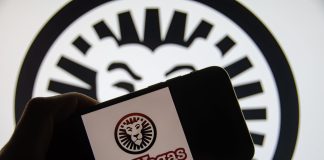After an action-packed summer of sports, including the European Championships in Germany and the Olympics in Paris, James Ross, SBC’s Multimedia Editor, was joined by Jonathan Collins, Strategic Services Team Leader at Optimove, to explore the trends we’ve witnessed over the last few months.
Focusing specifically on the European Championships, Jonathan explained that operators saw a large uptake in new and returning players during the tournament, and significant increases in betting activity when a player’s national team was playing.
These trends were expected based on data from previous tournaments, however, Jonathan noted that a slightly different trend was spotted around the final game between England and Spain.
He said: “One thing that we didn’t expect was specifically around the final. A number of key teams had been knocked out at this point, but we did see the finals being the biggest day in terms of the number of bettors across Europe, especially in Southern Europe and large parts of Eastern Europe and not just in England and Spain as you may have expected.”
Over 80% of bettors during the Euros used mobile devices, however, live betting figures were lower than expected, especially in England.
Just 40% of players in the region took part in live betting during games, with this figure dropping to 30% when England were playing.
“This [data] would point to a couple of factors, the first one being that casual bettors seem to have a bit less of a preference for live betting in general,” explained Jonathan.
“If you’re placing a bet and you’re only going to place one bet, you’re probably just going to pick the winner or pick the score or something of that nature and check out of the app at that point.
“I think as well with England specifically this is another case of genuine interest. We’re looking at England trying to win a major tournament and the people I spoke to, they just wanted to place their bets and watch the match.”
After a spike in activity during the tournament, operators experienced an abrupt slump following the end of the event, with retention rates dropping by 50%.
Looking at how firms can try to capitalise following the tournament, Jonathan emphasised the need to develop a “local marketing plan” that includes a calendar of key sporting events coming up in each region, such as the restart of the domestic football season.
He added: “For non-new players, we should have a pretty good picture of player activity and understanding of their interests. We can start to isolate those players who only come out for the big events and let them churn organically rather than throwing good money after them.
“Focus retention efforts on users who are more likely to remain and focus on increasing RPO at this point. Highly personalised content, product recommendations and educational content is the way to go here.”
To end the episode, the duo discussed the need for caution in generosity spending, a topic addressed more in-depth in a previous episode of the iGaming Daily podcast.
Jonathan again reiterated the need for personalisation and also to focus on “high-quality non-bonus content” in a bid to end the cycle of customers expecting constant perks when operators interact with them.
He said: “I think this is something that operators tend to skip a little bit. I think educational content is really good, I’ve got one poker app that occasionally sends you what to do in this situation if you’ve got a certain hand.
“This is engaging content that operators can pivot to and get away from only interacting with users when they’re sending free spins or a free bet. As much as anything else, this trains users to expect that generosity from you instead of saying, ‘We’ve got great products, here’s some information about it’.”





